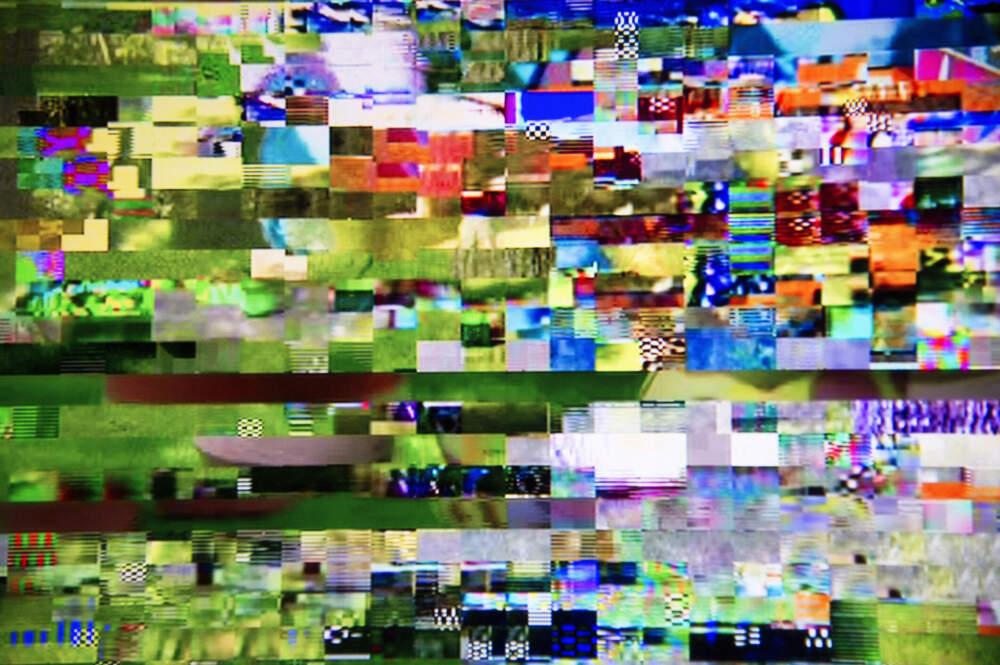Advertisement
Commentary
How to survive the 'pressure of the real'

Last week, I was driving with my youngest child to his Dungeons & Dragons play group. I had the radio tuned to NPR, which — in the space of perhaps 10 minutes — offered reports on the war in Gaza, the war in Ukraine, the climate crisis in Europe and the epidemic of homelessness here in the United States.
My son was ostensibly reading a book. But like all children, he was also listening to what the adult world was telling him. And for a moment, I pondered what it must feel like for him to absorb all these sad and frankly terrifying stories.
This is not a criticism of NPR. These stories merit coverage; there’s no way to mobilize the public to push for solutions if the media pretends these crises don’t exist.
But it’s also true that most of us feel overwhelmed, and occasionally helpless. The poet Wallace Stevens wrote about this dynamic, way back in 1942, in the essay “The Noble Rider and the Sound of Words.” He referred to this unending stream of news reports as “the pressure of the real,” and how, as a poet, absorbing this pressure, day after day, can sap our hopeful energies and demolish our imagination.
I’m [often] caught in what the cultural historian Neil Postman calls a “great loop of impotence.”
As a writing teacher, I’ve seen how easily the “pressure of the real” can crush my students. After every calamity, a certain number will tell me they see no point in writing, given how broken the world around them is.
I often feel the same way. As I tune in to WBUR, or read essays on Cognoscenti, I’m caught in what the cultural historian Neil Postman calls a “great loop of impotence.” There’s all this horrible news out there; I have no idea what to do about any of it.
So what is a citizen of good faith to do? That’s the question I’ve been mulling with increasing urgency for the past decade. Here’s what I recommend:
*Convert your anxiety into action. The only surefire way to fight “the great loop of impotence” is to take some kind of action. This requires shifting from a posture of passivity (the default setting of us doom scrollers) to activism. I don’t just mean political activism. It could be any kind of action: delivering meals to seniors or planting a garden or volunteering with your faith group.
For me, as a teacher of creative writing, it meant launching Workshops for Democracy, a series of writing workshops where the enrollment fee for each student was a contribution to a candidate or cause of their choosing.
The very act of gathering together — of recognizing that we are not alone in our efforts to better the world — proved incredibly empowering.
*Find stories that seek meaning and connection, not sensation. One of the great services that Cognoscenti provides is the chance to read, or listen, to stories that go beyond simply telling us what’s happening, that help us understand the meaning of those events. And, just as crucially, that make us feel less alone.
Resist stories that confirm or amplify our agitation, and instead, seek out stories that appeal to our hunger for meaning and common humanity. Stories that allow us to realize that we’re not the only ones battling addiction, or the rigors of divorce, or the anguish of caring for elderly relatives.
*Stay informed, but tune out if you feel numbed out. Given the very real problems we face as a country, and as a species, it feels negligent to simply ignore the news. But it’s also important to recognize, internally, when we’re feeling overwhelmed and deflated. In these moments, my advice is to step away and recharge your batteries.
*Think about your children — or someone else’s. It can be easy these days to seek refuge in apathy or cynicism, to detach from your role as a citizen. But it’s important to remember that children don’t have that luxury. Our kids are listening to what we say, and watching what we do. And they, ultimately, are the ones who will inherit the world we bequeath them.
What they need, more than ever, are adults who refuse to surrender to the “pressure of the real,” who continue to imagine the possibility of a safer and more just world, and who find ways, however humble, to hope for that world and to help create it.
